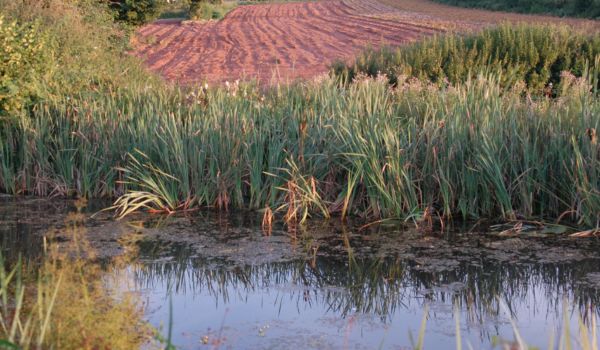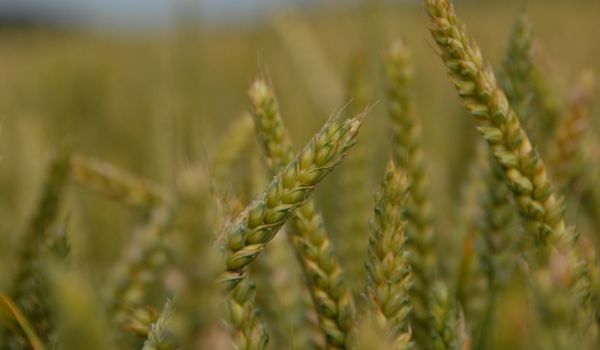A Welsh Catena Sequence
Histisols
The STARS team are in Wales, examining its rich Histisols.
Spodosols
The STARS Soil team explore the soils in the Catena Sequence within Snowdonia National Park.
Alfisols
The STARS Soil team examine Alfisol (or Aquafal) soils within the Snowdonia National Park, Wales.
Alfisols
The STARS Soil team examine Alfisol (or Aquafal) soils within the Snowdonia National Park, Wales.
Entisols
The STARS Soil team visit Snowdonia in Wales to examine the Entisol soil order.
Introductions to soil science
Introduction to soil classification
Filmed at Myerscough College, Lancashire, England, we introduce Soil Science to undergraduates at Lancaster.
Soil orders in the Canary Islands
This video introduces the world soil orders in the Canary Islands, as well as the process of their formation.
Further reading:
Mineral weathering
Introducing mineral weathering, our scientists discuss the significance of basaltic columns in revealing the history of soil.
The soil lifespan
STARS PhD student Dan Evans discusses his research into the lifespan of soil from formation processes through to erosion.
Five factors of soil formation
The STARS team introduces the five factors of soil formation: parent material, climate, topography, biology, and time.
Introductions to soil quality
Soil quality
In this video, Professors Phil Haygarth and Davey Jones discuss the key indicators of soil quality.
Soil decomposition
Professor Dave Chadwick and PhD student Leigh-Ann Kemp discuss the decomposition rates and how climate impacts upon key soil processes
In the Laurel Forest
The STARS team visit the Laurel Forest in Maderia, a classical Andisol site and subtropical rainforest.
STARS and the Soil Security Programme
The Soil Security Programme is designed to fill knowledge gaps within soil science linked to soil functioning, climate change and land use change, by adopting multi-disciplinary, multi-scale approaches. Here, Professor Chris Collins the Soil Security Programme Co-ordinator talks about the synergy between the SSP and STARS and how this strengthens STARS aims to produce the next generation of soil scientists.
The 2018 Russell Lecture by Professor Cheryl Palm
"Soils & Food Security: A Management Conundrum"
The 2018 Russell Lecture was delivered by Professor Cheryl Palm at the British Society of Soil Science Annual Conference at Lancaster University as part of the "Soils and Sustainability Development Goals".
Phosphorus and the soil
Phosphorus and soils
Phosphorus is a major limiting nutrient for plant growth, therefore making it a key player in global food production. Humans impact the natural phosphorus cycle by mining rock phosphates and applying them to land as fertilisers. However, upon application up to 90% of phosphorus fertiliser becomes unavailable to plants. Therefore, it is essential to employ efficient and sustainable management of phosphorus in soils. Here, STARS student Malika Mezeli explores the determination of phosphorus in soils and how this can be used to close the loop on the global phosphorus cycle.
Why is Phosphorus important?
Phosphorus is a key component of life on earth and a major player in soil dynamics and agricultural production. STARS Student Malika Mezeli asks attendees of the Organic Phosphorus Workshop 2016 why Phosphorus is important.
The key global issues associated with Phosphorus
The distribution of Phosphorus around the world is not balanced. There is a contrast between areas where Phosphorus is abundant and those where there is not enough. In areas where Phosphorus is abundant, issues around eutrophication and managing excess nutrients occur. Contrastingly, areas of Phosphorus depletion pose challenges to crop production and food security. STARS Student Malika Mezeli asks attendees of the Organic Phosphorus Workshop 2016 what they feel the global issues associated with Phosphorus are.
Understanding Phosphorus cycles
Understanding the organic and inorganic Phosphorus cycles is essential to sustainably managing Phosphorus and combatting a variety of global issues associated with uneven distribution. Attendees at the Organic Phosphorus Workshop 2016 give their insights as to how better understanding of Phosphorus cycles and dynamics can help combat global issues associated with Phosphorus.
Methodological challenges to studying Phosphorus
Advancement in soil phosphorus research requires an understanding of system dynamics including phosphorus turnover and phosphorus pools. However research faces many methodological challenges. In this short video attendees of the Organic Phosphorus Workshop 2016 share their insights into the methodological challenges of studying soil phosphorus.
Soils and the delivery of ecosystem services
The final frontier of hydrology – water and soil
Francis Parry Roberts presents his STARS PhD Research, taking a look at the often untold chapter in the story of the water droplet.
Life and soils
STARS PhD student, Paul George discusses life in soil. He explains how living organisms play crucial roles in maintaining soil health across the planet; providing plants and animals with the water, nutrients and habitat they need to survive. Greater understanding of these organisms and their interactions has the potential to promote sustainable and healthy agricultural systems.
Antibiotic resistance on the farm
STARS PhD Student Alex Williams presents an insight from his research on antibiotic resistance in soils.
Nitrous oxide in soils and the environment
STARS PhD student Harry Barrat shares his research into Nitrous oxide, and how soil moisture and management might affect emissions of this potent greenhouse gas from the soil to the atmosphere.
Gases and soil
PhD students and academics at STARS Soil discuss the nature of gasses present in soil.
The soil orders of the world
Alfisols
STARS Soil experts explore the presence of Alfisols in Snowdonia National Park, Wales.
Alfisols
The STARS Soil team examine Alfisol (or Aquafal) present in the soil within the Snowdonia National Park.
Andisols
The STARS Soil team visit the Western Corona Pine Forest in Tenerife to examine the nature of Andisols.
Entisols
The STARS Soil team visit Snowdonia in Wales to examine the Entisol soil order.
Entisols
The STAR Soils team visit El Medano, Tenerefe to explore Entisol soils.
Histisols
The STARS team are in Wales, examining its rich Histisols.
Inceptisols
In Malpaís de Güímar, the STARS Soil team examine the Inceptisol soil.
Spodosols
The STARS Soil team explore the soils in the Catena Sequence within Snowdonia National Park.
Oxisols
The STARS Soil team visit El Cepo in Tenerefe to learn more about the Oxidol soil order.
Ultisols
STARS Soil visits the Teno Peninsula in Tenerefe to examine the Ultisols present in the area.
Vertisols
The STARS Soil team take a trip to La Gomera, Santa Catalina, to explore the nature of Vertisols.


.jpg)
.jpg)


.jpg)
.jpg)